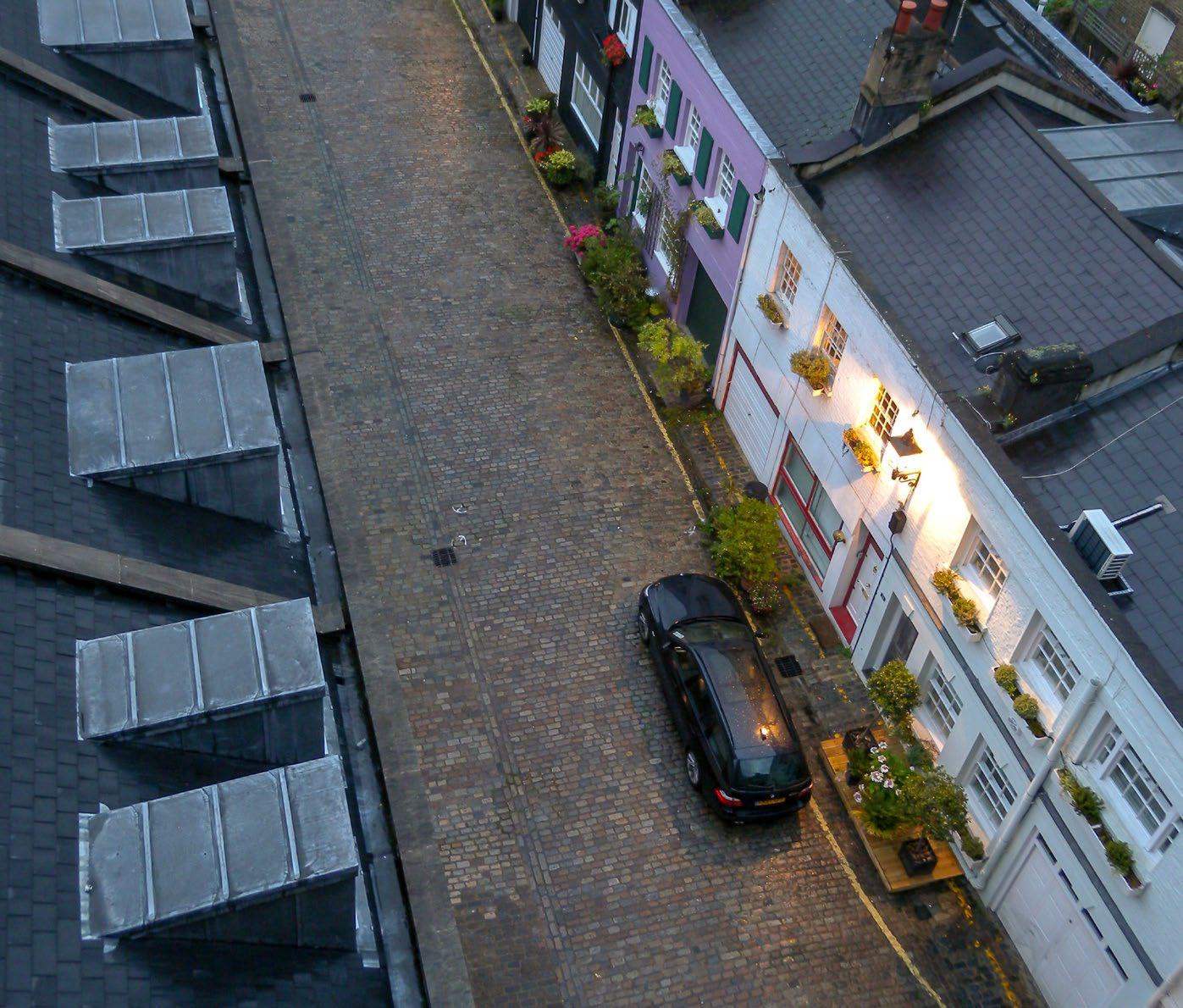No Winter of Discontent for the Domestic Buyer

Regular contributor to the Sunday Times and FT, Zoe Dare Hall provides an update on London’s prime property market.
We have had a few tasters in recent weeks of what a long, hard winter might look like – and, well frankly, roll on Spring. But it’s not all doom and gloom, says Zoe Dare Hall
“City life looks pretty similar to its pre-pandemic hustle and bustle”

If last year’s answer to everything was a weary “because of Coronavirus”, then now, in late 2021, it’s a similarly withering “supply issues”. There was the mind-boggling site of mile-long queues at fuel-less petrol stations. Independent retailers battling to survive, having run out of the most random items, from cardboard to glass, and restaurants struggling to serve customers for lack of staff. Recently-relocated families, fresh from stints overseas, are having to adjust to minimalist living, while their worldly possessions sit on containers in some distant ocean. And those renovating homes are watching the price of materials go through their as-yet-unimproved roof while they book in builders for this time next year. There’s even – brace yourselves – talk of a wine shortage this Christmas.
Is it all doom and gloom though? Well it’s easy to ignore some – maybe all – of these things if you choose. The fuel crisis may be averted for now, but who wants to drive in London these days anyway?
Instead, as you wander around London, city life looks pretty similar to its pre-pandemic hustle and bustle. Christmas window shoppers are out in force. Early evening drink culture is alive and well in City and Canary Wharf, fuelled by mild-autumn evenings.
However, London has some reinvention to do, to persuade foreign property buyers to return, thinks Marlon Lloyd Malcolm, Lurot Brand’s Sales Director. “The global centre that London used to be needs time to reassert itself. It’s no longer the gateway to the financial markets of Europe, so there’s an identity crisis that needs to be overcome for foreign buyers,” he comments.
The impossibility of travel for so many months – and now, simply the tiresome extra effort required in Covid testing and paperwork, has also left foreign visitors and prospective property buyers needing an extra push to come here. “Some of those who already own homes here are feeling very motivated to sell,” says Lloyd Malcolm. “This past year, all our worlds have become smaller and these owners are questioning the point of having a £2m-£4m London property that they’ve only visited once in that time.”
The domestic market is ready to fill the gap, though. “They have a renewed optimism in London and having a base here. We haven’t got Covid beaten, but we can see a future beyond it,” says Lloyd Malcolm, who reports an “extraordinary” September and October for sales. Unlike earlier in the year, deals weren’t down to vendors softening on their prices, but because buyers were bolstering their offers. “Rather than saying ‘This is my best and final’, they have been finding that extra £500,000,” says Lloyd Malcolm.
Those who needed to relocate in time for the school term were already happily ensconced in new homes by September. Wealthy international students, ready to experience university life properly again (or for the first time), are back. So are some – particularly US – corporate relocators. And the London pied à terre has never been in greater demand, as those who made the move to the countryside need a Monday-to-Thursday pad back in town, now that companies are no longer pushing the work from home message. “Mews houses are the perfect lock up and go if you’re spending two or three nights in London, without all the communal stairwells and lifts in apartment blocks. And you can park your car outside,” says Lloyd Malcolm.
Mews houses are the perfect lock up and go

Statistics for properties sold by Lurot Brand between January & October 2021
95%
of asking price achieved on average
22%
less available mews listings compared to 2020
31%
Increase in transaction volumes from 2020
63%
Increase in transaction volumes from 2019
He is also seeing rural downsizers – mostly cash buyers – in search of the cultural and social buzz of city life, and first-time buyers (buoyed up by the parental coffers). “By mid-October, we were already 20% ahead of our year end 2020 figures, in terms of the volume of transactions. We are likely to finish the year 60% ahead of last year,” he comments.
The rarity and charm of mews houses, plus the prestige of owning a freehold central London house in a village-like street, makes them a safe investment. They have risen consistently in value over the decades. Lloyd Malcolm points out that every year over the last five years, Lurot Brand’s transactions have always achieved an incredibly consistent average of 95% of the asking price. Achieving such strong prices, is a mark of the agency’s expertise in a niche, prime London market, where Lurot Brand will often have sold the same mews several times over the years. “Some vendors will be swayed by agents offering a cheaper fee or higher valuation, but it usually doesn’t work out in their favour,” says Lloyd Malcolm.
What mews buyers tend to have in common now, is that they are usually end-users, not investors. These are homes suited to peaceful home offices, music studios or classic car garages. They are located in close-knit streets with a strong sense of community. Behind their cottagelike facades are ultra-modern, open-plan interiors, large, glazed extensions that lead to hidden courtyards and secret gardens. Others have been professionally interior designed to include showstopping feature staircases, gyms, steam rooms and saunas. And, of course, they are the perfect homes for entertaining. Better stock up on the Christmas wine now, … Just in case (no pun intended!).
